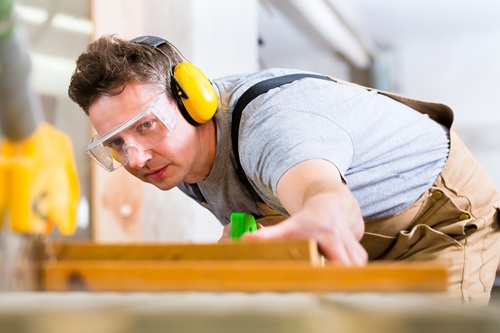Helena Bourdillon has survived and triumphed over chronic depression and now freedives to world-beating depths. A star speaker at SHW Live this year in London, her success she says is built on a philosophy of trust, which she nurtures through her five tools. We take a deep dive to explore how this approach can be applied to reducing stress at work.
Features
Freediver, Helena Bourdillon on how trust is the key to productive and happy workplaces
“Self-trust is absolutely foundational to resilience. When I’m 79 metres underwater, I can’t second-guess myself – that internal doubt would likely be fatal. The same applies in boardrooms and throughout businesses. When you trust your ability to handle whatever comes, you respond rather than react. You make clearer decisions, you become more resilient.”
 "The true opposite of anxiety is trust." Photograph: Federico Buzzoni
"The true opposite of anxiety is trust." Photograph: Federico Buzzoni
At SHW Live, on the opening morning slot of day two on a hot Thursday in June, champion freediver, Helena Bourdillon, with four World Records and multiple National Records to her name, took her audience of safety leaders on two virtual dives. The first, we sank into dark waters where we hallucinated monsters and felt our lungs tightening as we plummeted. The second, we felt as ‘free as a bird’, relaxed and focused and enjoying the sensations and sights of deep water.
Explaining what had just happened to her audience of now very much refreshed delegates, she said we had undergone the same journey, but with a crucial difference: “Two very different perspectives: the first dominated by fear, the second transformed by trust.”
‘The true opposite of anxiety is trust’
Helena told the story of how working on trusting herself has been key to her success and confidence, particularly in her transition from amateur to professional freediver. “I found the opposite of anxiety wasn’t peace and calm, they are wonderful byproducts. The true opposite of anxiety is trust. Trust in ourselves, trust in our training, trust in our team around us,” she said at the show.
These are simple but potentially revolutionary statements and intriguing in their simplicity. With stress and anxiety huge problems in UK workplaces – new cases of work-related stress costs UK society £5.2 billion per year, according to HSE – could we apply this understanding and use the five tools that Helena has developed to tackle stress in ourselves and within our organisations? To explore further we messaged Helena over email.
 Helena at this year's SHW Live show in London where she was a speaker. Photograph: Instagram / @helena_bourdillon
Helena at this year's SHW Live show in London where she was a speaker. Photograph: Instagram / @helena_bourdillon
‘Numb to life’
First, we should share how Helena managed to go from crippling depression to breaking freediving World Records. Her mental health journey began aged 12, at boarding school where three weeks of persistent low moods would lead to a period of respite, only for the cycle to begin again. This “all but consumed my life,” she bravely shared on stage.
“By 2000 I was so numb to life, my feelings and emotions, that I started self-harming to see if I was capable of feeling. It was not until I was on the verge of suicide that I realised something was desperately wrong. I was diagnosed with depression, anxiety, self-harming and suicidal ideation,” she stated.
From this place of rock bottom, and with the help of regular therapy and the support of family and friends, she surfaced to a better mental state. Helena also found meditation incredibly useful, and her first actual dive aged 39 was a turning point. In the water she felt like ‘coming home’, her worries melting away: “This was the first time I’d been brought into the present moment – it was so powerful, and yet so peaceful. It showed me how I was capable of being.”
A philosophy and toolset for any work context
But although diving helped her mental health, Helena needed something more to get to the next level when she wanted to freedive competitively. Describing her first World Championship freedive, a colleague joked that she ‘looked like she was having a heart attack!’ Yet, the dive itself had gone to plan. She realised that she needed to work on her self-trust to go to greater depths.
So, using her insights from therapy and meditation, she developed five tools. These are simple exercises based on breathing and mindfulness techniques, as well as Cognitive Behavioural Therapy (CBT), to help build presence and confidence.
“The five key tools I talk about create a foundation of calm from which self-trust can grow,” she explains over email. “They focus on regulating the nervous system meaning we can access our full potential rather than being hijacked by fear.” She says that each successful application builds evidence that we can rely on ourselves: “I consistently use these tools to help me perform better both underwater and on stage.”
 Photograph: Daan Verhoeven
Photograph: Daan Verhoeven
Helena believes that her philosophy and toolset can apply to any work context. “The benefits compound quickly,” she says. “Within days, people notice clearer thinking and better emotional regulation. Within weeks, people will be sleeping better and feeling more resilient. Within months, they’re making better decisions and building stronger relationships.”
Trust – the key to building a healthy organisational culture?
What about trust in organisations? Could we build healthier cultures by working on trust? We explore this more by looking at the opposite correlation – what absence of trust might look like in a workplace.
In the UK, we lose the equivalent of 44 days’ productivity through presenteeism, according to a 2024 IPPR report. Presenteeism is a symptom of a breakdown in trust and a toxic workplace, she argues: “In organisations, you can see this where people hoard information, avoid taking initiative or spend more time covering themselves rather than creating value and on a personal level, [not feeling trusted, or trusting others] shows up as imposter syndrome, decision paralysis and / or presenteeism.”
Absence of trust affects us individually too: “When we don’t trust our leaders or systems, our nervous system stays in constant alert mode – we’re always scanning for threats, second-guessing decisions and burning mental energy on survival rather than performance.”
Trust is built from top leadership, but where we cannot pick our leader, we can build trust in our inter-team relationships, which can be powerful, she says. “For teams, [building trust] requires psychological safety, transparent communication and leaders who model the behaviour they want to see. How the process is framed is important, placing the emphasis around performance enhancement.”
 "For teams, [building trust] requires psychological safety, transparent communication and leaders who model the behaviour they want to see." Photograph: Simeon Quarrie
"For teams, [building trust] requires psychological safety, transparent communication and leaders who model the behaviour they want to see." Photograph: Simeon Quarrie
Trust possible in our tech age?
But trust is arguably a very human thing. Can we have trust in our increasingly technological age, where more of us work remotely? (Hybrid working is now the ‘new normal’ for more than one in four workers, showed ONS data from early this year).
A paper in August 2024’s edition of the European Management Journal, Out of sight – Out of trust? explored the impact of workplace isolation among remote workers – specifically reliance on modern forms of communication like video conferencing – on trust. It found that reduced perceived quality of communication forms, such as video, had a real impact on erosion of trust particularly between supervisors and their staff. “We suggest that isolated workers may interpret the lack of key aspects of effective communication, such as limited bodily movements, reduced options for small talk, and a lack of situational awareness, as a lack of quality in the information exchange between co-workers,” it said. “Workplace isolation may deteriorate interpersonal trust through reduced communication quality,” concluded authors.
Other research has found that employees can feel pressure to be ‘always on’ while remote working, to prove they are earning the right to have the freedom to work from home. This might translate to a worry about our Teams status, or being a moment slow to reply to a message, working ever harder and harder to win and sustain trust. But Helena wonders if technology isn’t the problem, rather it exaggerates problems in organisational cultures that might already exist. “Technology amplifies what’s already there. If we’re coming from a place of distrust and fear, then technology becomes another source of surveillance and stress. But if we can approach it mindfully, it can serve us rather than control us.”
“We are so focused on how others might perceive our status that we’ve lost connection with our actual work and wellbeing. I believe the key is setting boundaries and using present-moment awareness tools to create space for conscious choice rather than automatic reaction.”
Helena’s journey from the depths of depression to the World Record holding sportswoman and inspirational speaker she is today is remarkable. Her success she says is built on a philosophy of trust, which she nurtures through her five tools. Businesses and individuals can borrow them – techniques that are fast becoming more leading, less ‘alternative’. Many major companies, like Google, Nike, and Salesforce are now incorporating breathwork and mindfulness practices into their workplace culture to improve employee wellbeing and performance.
“There’s definitely been a shift,” says Helena. “What was once dismissed as ‘alternative’ now has robust scientific backing.The business world should be particularly receptive because there are measurable results – reduced sick days, better decision-making, improved team dynamics.” A persuasive case for more mindful working and building trust.
FEATURES

How to mitigate the hearing loss cost escalation tsunami
By Peter Wilson, Industrial Noise and Vibration Centre (INVC) on 06 February 2026
Employers need to adopt the latest and most effective noise risk evaluation and management measures, or face rapidly-rising compensation claims for noise-induced hearing loss at work.

Young drivers and work-related road risk: why employers must act now
By Simon Turner, Driving for Better Business on 06 February 2026
Young drivers have a higher risk of being involved in road collisions due to factors such as their inexperience, so when employing them to drive for work, it is vital they receive the right support to help them grow into safe professionals behind the wheel.

Financial stress: why and how it affects workplace safety
By Chloe Miller, freelance writer on 06 February 2026
Financial worries can lead to cognitive impairment that increases the risk of workplace accidents, so it’s essential employers provide financial education and confidential support for workers who may be struggling with problems like debt and unexpected living expenses.



